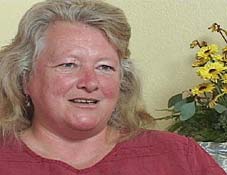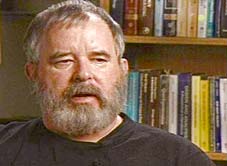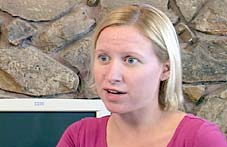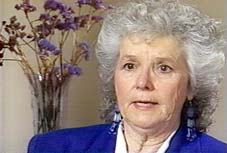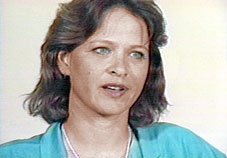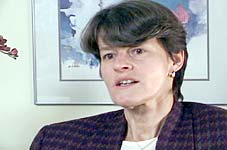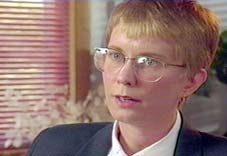 |
|
|
Videos
PO Box 2480Nevada City, CA 95959
Phone/Fax: 800-345-5530
(530-477-0701 outside US and Canada)
Email: info@cavalcadeproductions.com
 Videos for Adult Survivors of Child Abuse
Videos for Adult Survivors of Child Abuse
|
The Body in Mind (#285, 30 min.) These seven programs are intended for adult survivors of child abuse, their families and friends, clients in therapy, and general audiences. Condensed from our clinical training series, these 30-minute videos contain a greater proportion of interviews with adult survivors of child abuse, as well as therapist discussion related to client issues. Purchase price: $39.50 for one DVD The Body in Mind: Many therapists have found that working with clients to identify where and how they hold trauma in their body, and helping them to release it, can help trauma survivors to befriend their body. This program discusses and shows examples of various somatic approaches, including yoga, model mugging, and play therapy.
Wounds That Won’t Heal: Adverse childhood experiences (ACEs), though well concealed, are unexpectedly common, and have a profound effect on adult health. Three men and five women, adult survivors of ACEs, describe their experiences and the effects later in life. Condensed from The ACE Study, released 2005.
Numbing the Pain: This program explores the functions of substance abuse in trauma survivors’ lives, and the difficulties faced in therapy by clients with both problems. Two men who experienced combat trauma, and two women who are adult survivors of child abuse, discuss their work in overcoming these effects. Condensed from Trauma and Substance Abuse, released 1998.
It’s Not About the Food: Eating disorders serve many functions in the lives of trauma survivors. Seven women, adult survivors of traumatic experiences, describe the challenges and benefits of therapy that addresses trauma and eating disorders in an integrated way. Condensed from Trauma and Eating Disorders, released 2003.
Counting the Cost: This video examines the complex effects of severe childhood trauma, including dissociation, somatic symptoms, and difficulties in relationships. Two women and one man, adult survivors of child abuse, and a woman who survived severe childhood illness, describe how these experiences affected their lives. Condensed from Severe Early Trauma, released 1995.
Understanding Self Injury This video discusses the various forms of self injury, and its function as tension reduction, punishment, trauma reenactment, and rage expression. Three women who are adult survivors of child abuse describe their experience of and recovery from self-injuring behaviors. Condensed from Self Injury, released 1994.
Success Stories: Psychotherapy can make an enormous positive difference in the lives of trauma survivors. Four women and one man, adult survivors of child abuse, describe the challenges they faced and the goals they achieved during the course of treatment. Condensed from Successful Trauma Therapies, released 2000.
True/Not True: This program explores how dissociation can serve as a defense against overwhelming stress, how the mind processes and stores traumatic events, and how such events can come into conscious awareness years after they occur. One woman and two men, adult survivors of child abuse, describe their experiences of dissociation and memory retrieval. Condensed from Trauma and Memory, released 1993. |

